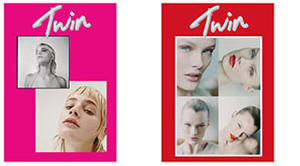Carcel is proposing a new model, new methodology, and new mindset in fashion. One free from broken matrixes, the disjoint of seasons, and the hysteria of discounting.
Launched in Copenhagen in 2016, Carcel is a brand of forward thinking change. While their raised issues are nothing new to the verbalised battles currently gaining ground under the buckling pressures of the luxury fashion industry, they are set apart in that they have chosen to action what others so far have only dared to digress.
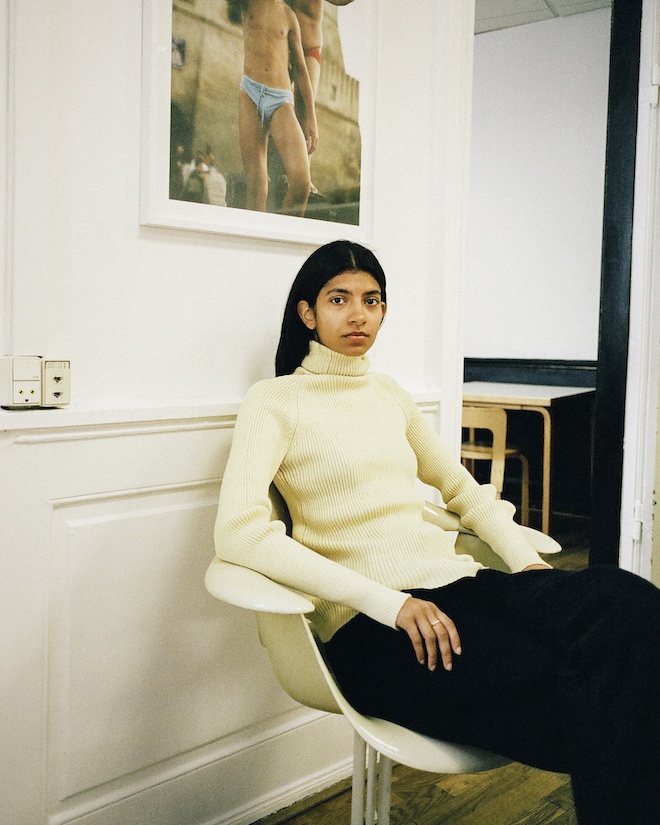
Carcel was founded on the principle of working with incarcerated women, working with the best natural fabrics, and working outside the fashion model. Carcel founder Veronica D’Souza’s decision to work with incarcerated women stemmed from her personal experiences of visiting women’s prisons in high-poverty countries and the strain on dignity, emotion, finance and family that came from the struggles these incarcerated women faced:
“The main cause of incarceration for women globally is poverty. It’s predominantly non-violent crimes that women are incarcerated for, and it’s non-violent crimes such as drug trafficking, prostitution, theft, and the main cause is most of them want to provide for their families. When they are incarcerated they have to give up their children, either to an orphanage, or if they’re lucky enough relatives, and when released they are poorer than they were before. It’s also a very big social stigma, to be a criminal or ex-criminal and particularly if you’re female, so it’s very difficult to get a job. In the prisons, all the women were all knitting, sewing, crocheting and making small crafty things, but they didn’t have access to good materials, and they didn’t have anywhere really to sell that product. You could buy a few of them in the visitor store for very little money, so it ended up being more like vocational training or a way to spend your time, but they didn’t make any money.”
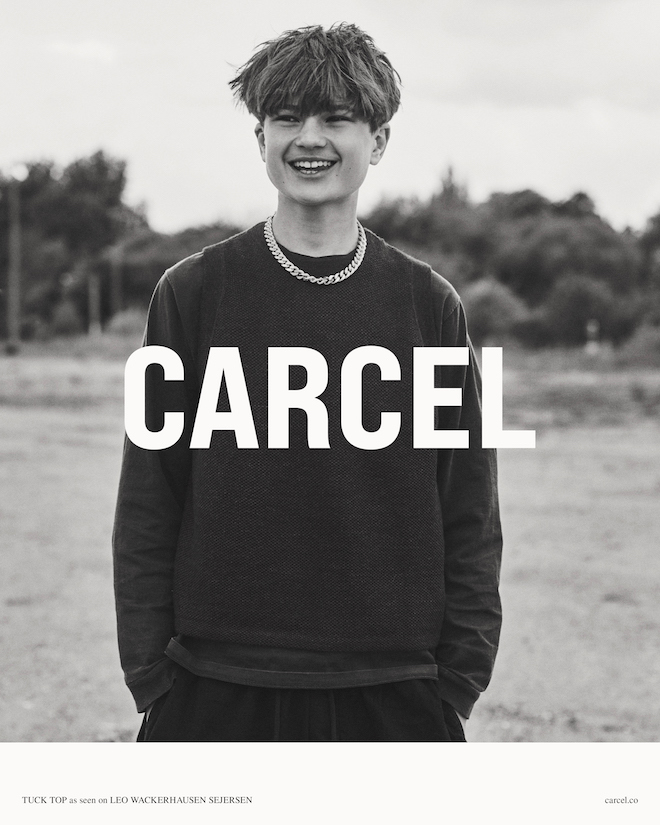
Exploring these activities the women were undergoing, the thought of offering a fairly paid opportunity to these women by providing high-quality fabrications and job security felt like there could be a chance for a fashion brand to hold more than sartorial affectations at its core:
“I thought that if you could cover those three things: good materials, education, and also a market to create proper salaries, these women could keep on providing for their children, who are small when they are incarcerated so they still need a provider, save up for when they get out, and also learn new skills. This came back to the lesson I have learnt about making things desirable: if you want to create something that has a market and is sustainable, how can you make something that’s really good quality.”
A business model was emerging, that took the form of a firm new approach. “I made a challenge for myself about what could a supply chain look like if it was rethought. I made a map of the world of the countries that have the highest rates of poverty with crime for women, so where I felt there was a lot impact to be made, but also countries that have natural materials that are the best in the world and a tradition for craftsmanship amongst women. Peru was number one of that list on my map.”
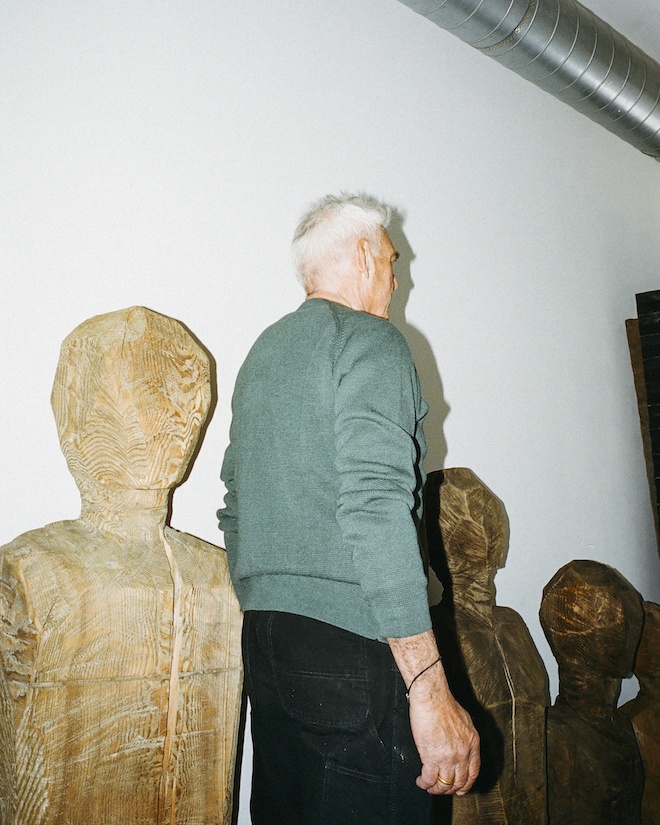
A woman’s prison in Cusco was her first partner in the launch of Carcel, with a kickstarter campaign allowing for the first knitting machines to be purchased and provided for the women who would be the fair-paid producers of the brand. “We have merged production so it can have a social impact and just harnesses natural materials from the region where we produce.”
Speaking to Veronica on the phone, the energy of her dedication twangs off every word as she rollers through the history and foundations of Carcel. When you can almost see the passion in someone’s mission just through a phone call, you can tell this is more than a business – this is a call to action.
Veronica’s background is not an expected answer for someone leading a luxury fashion label, but that is part of what makes Carcel so exciting.
“Firstly, I think it’s important to say for me that I don’t have a background in fashion- at all. I’m really passionate about finding solutions to problems in society, but through business. And making those solutions desirable. So I think for too long we’ve had a split between like the old capitalism, that basically messes up the world, the planet, and then like a lot of do-good, which is not necessarily with the consumer in mind. Money comes through the product, or the service, or whatever is created. So, I guess that’s where my passion really lies.”
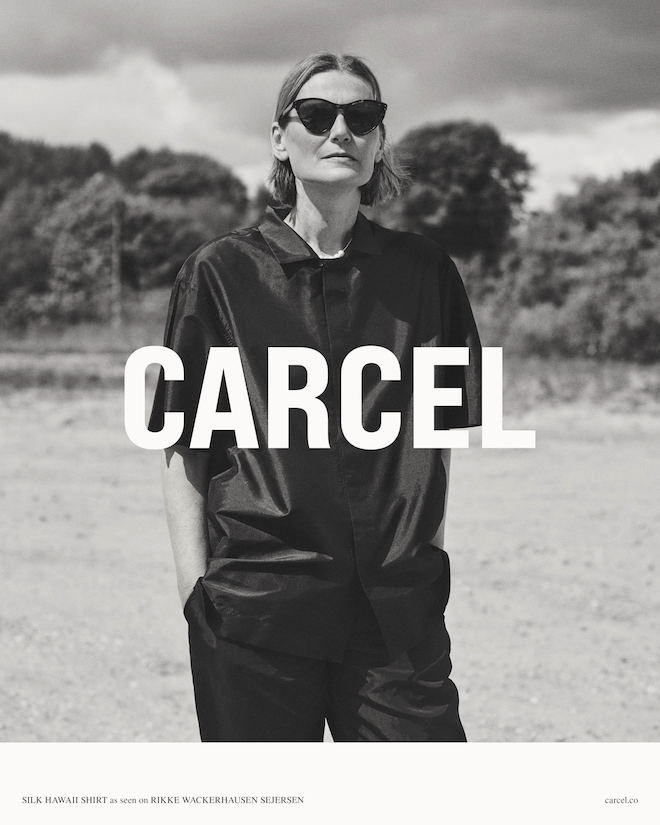
What was it about fashion that demanded her decision to create a whole new way of working?
“It doesn’t really make sense to create a fashion label that just feeds into the same way as what’s wrong with the industry today. So from the beginning I tried to write down dogmas for creating our own value chain.”
And the result of these new tenets of design practice? “We don’t have any collections or any seasons, we don’t have sales, and we are trying to rethink how to not waste anything. It goes back to Danish design tradition, to create something that is good quality, and that can last and that can stand the test of time, and just not be done with: I think that’s the main core of how we operate today.’
The way Veronica breaks down and draws comparisons with the industry and social strictures is somewhat compelling; her views of the fashion industry as we know it has certainly .
“In some ways fashion is incredibly old-school in its thinking and the industry model. I don’t really understand, because in my mind it is divided into two very separate parts, like the body and soul. The soul is really cool – that is the identity and aspiration. It is progressive, and is a way of expressing yourself. The body of fashion, the industry, is so broken, and badly treated and rotten. I think that’s extremely regressive, because I think at the same time there’s still this tendency just to put it on a pedestal.”
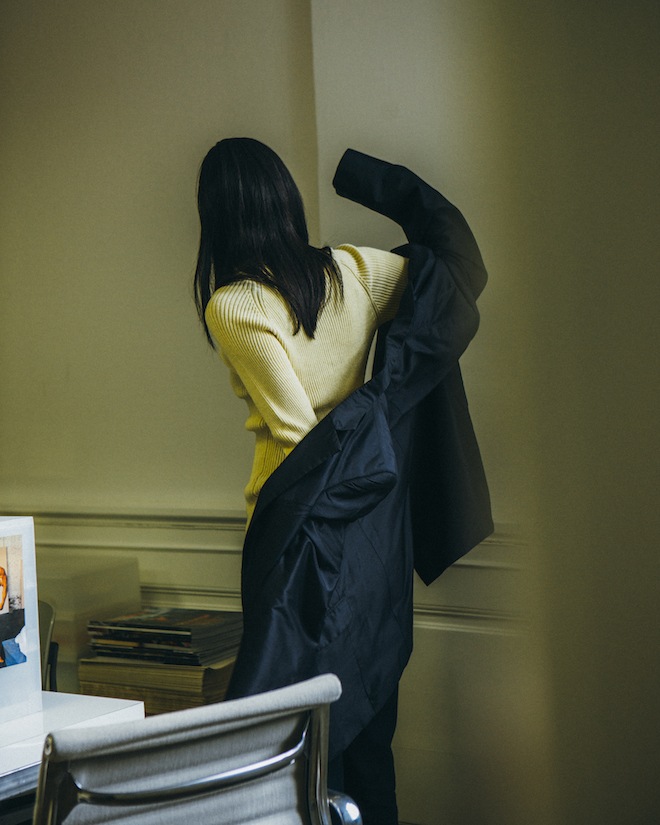
What is the purpose of a brand does she feel?
“You need to say something, how to become a story teller as a brand, what do different brands do and to think of different reactions. I think some are doing really well that really half a year ago didn’t have anything to say. So I think there’s a journey happening now which is hopefully interesting, and it also needs to happen because if not, fashion just becomes extremely irrelevant. If it’s not creative and expressive then what is it? It’s not that we need more clothes.”
And how do visuals interplay with Carcel’s brand message and purpose? With the launch of their new model further reinstating Carcel’s principles, the visual message must be as arresting as the purpose is crystalline; walking down the street, a wall of fly posters presenting a passerby with the wonderful words ’No Seasons’ and ‘Carcel’, a young man smiles as he squints through the sunshine at the camera. The images are modern, elegant, neither shouty nor shy. How important is the imagery for Veronica, and in turn Carcel?
“A lot. We’ve also been on quite a journey. So in the beginning it was very much focused on our production, but also focused on the branding element- creating a cool brand. That’s been really important for us in the beginning to like say this is not just for people who want a bit of world, and talk about fair wages, and female empowerment, and natural materials, it’s also about a relevant brand vision too. We’ve done collaborations with artists, and explored new avenues off our core narrative all the time.”
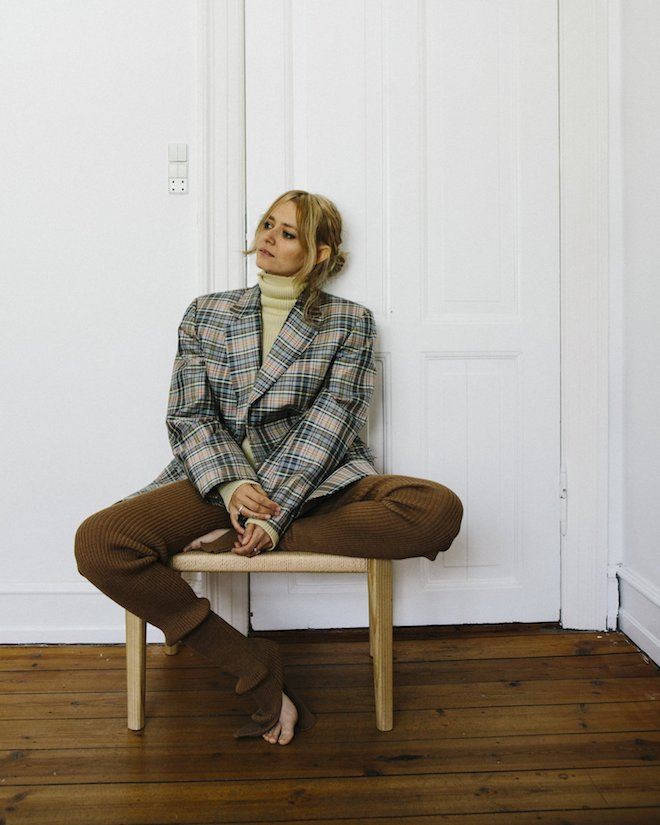
Of course, COVID19 enters our conversation, as surely it’s impossible for it to not be discussed; How does Veronica hope brands will react post COVID19?
“The whole seasonal wheel makes it impossible to create something that has value and maintains value, and that is properly made – from how people are getting paid to what’s put into the product. You need to be able to communicate on a digital platform, and say more than just ‘this is my clothes’, for more people to be interested in your brand. So that will hopefully be more of an incentive to look beyond what’s on the catwalk and what’s on the model, to what’s behind the process. I see a lot of collaborations coming up, people helping each other out. In general I see a lot of positive things happening, and I think the desire in society for solidarity, and for value beyond empty consumption I think is on the increase.”
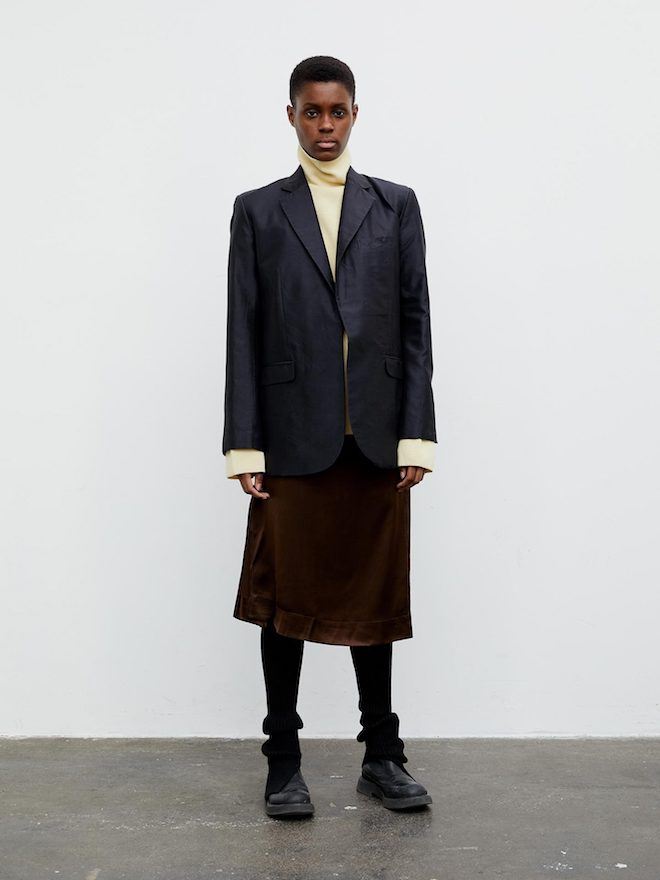
Looping back to her analogy on the body and soul, Veronica contemplates the need for both aspects of our being to work together, to collaborate: “for the soul, we need a driving force. We need culture, we need inspiration, we need arts, you know, that part of fashion as well to create those visions and dreams of what beauty looks like in a post-consumerist society. That’s something that occupies me a lot. So I hope that this break has freed some energy to spend time on that. “
Reimagine, reinvent and rebuild are the lasting words plucked out in bold from Carcel’s relaunch – the most concise words that surmise their focus to disrupt a system that is creaking on its foundations.
Here’s to Carcel, taking a stand, putting forth action, and allowing us all to take a leap of faith in fashion’s ability to move forward and beyond the boundaries we had previously set.
Reimagine, reinvent and rebuild.

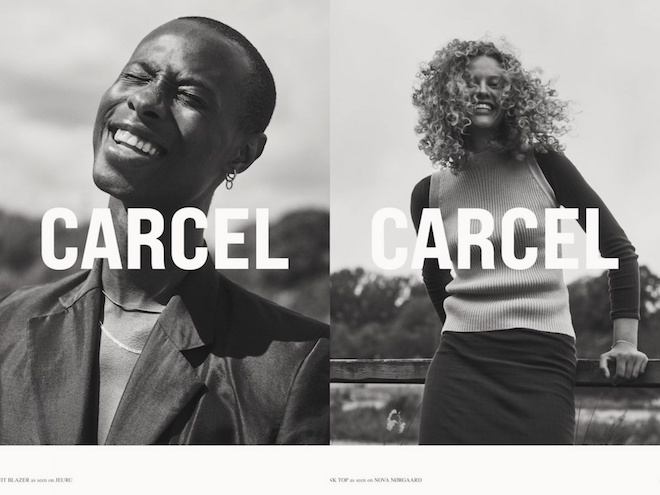
 PREVIOUS
PREVIOUS
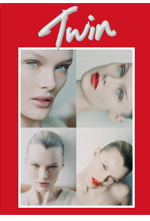
 Twitter
Twitter
 Tumblr
Tumblr
 YouTube
YouTube
 Facebook
Facebook
 Instagram
Instagram
